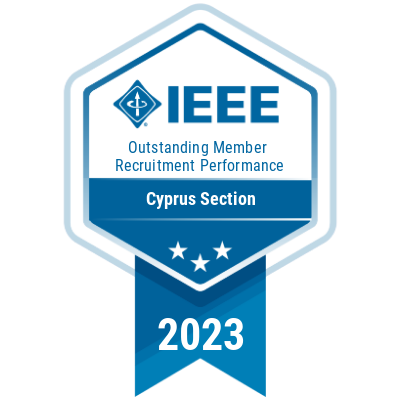The IEEE Cyprus Section is organizing a lecture for:
“BIG DATA AND COGNITIVE COMPUTING IN HEALTHCARE: WEATHERING THE PERFECT STORM”
Distinguished Lecturer: Professor M. Reumann – IBM Research – Zurich Laboratory
Tuesday, 19th April 2016, 18:30-20:00, University of Cyprus, Room 148, Faculty of Pure and Applied Sciences (FST-01), 1 University Avenue, 2109 Nicosia, Cyprus (directions).
The lecture is under the auspices of the Cyprus Medical Association
Abstract: Big data in healthcare is experiencing the perfect storm: The volume is increasing exponentially with accelerating speed, the variety of data ranges from multi-omics information to lifestyle measures with the help of mobile devices backed by cloud infrastructures. State of the art analytical methods are generally limited by computational approaches. Furthermore, the convergence of data analytics, sophisticated modelling approaches and cognitive computing gives promise to solve the big data challenges in healthcare and lifescience. Data analytics especially in todays ‘omics era yield results of large volumes given computational challenges are overcome. Sieving through the results requires expert and translational knowledge. Cognitive computing can play a significant role in making transparent results. Cognitive computing tools can be used to create hypotheses to guide experimental studies but also as prior knowledge that drives data analytics. The increasing amount of data requires a larger amount of computation that can at some point only be tackled using supercomputers. In biophysical modelling we have already shown how the computational challenge can be overcome using high performance computing systems. The sophistication of computer modelling of biophysical processes has made the transition from basic research to translational science and medicine. It is feasible today that data in healthcare will be augmented by simulation of biophysical models tailored to each patient. Cognitive computing is a promising path to make the analytical results transparent. The IBM WatsonTM technology allows analysis results to be represented within a global context of accumulated knowledge of published literature. To view data and analysis in that global context will not only enable verification of results, but also helps accelerate discovery and identification of, for example, new targets in drug discovery. The combination of data-driven and knowledge-based analytics in a cognitive computing environment becomes a powerful way to create hypothesis and to limit the search space so that it can efficiently be tested using traditional laboratory methods. The IBM WatsonTM technology allows one to find “the needle in the haystack” of today’s big data challenge. Hence, the power of big data can only be unleashed by embracing new approaches in data-driven analysis within a cognitive computing environment. This creates a holistic view that places big data analytics into the context of the accumulated knowledge of the scientific community.
A short biography of the speaker:
Matthias Reumann – Biography Matthias Reumann (1978) received the Masters of Engineering in Electronics with the Tripartite Diploma from the University of Southampton, UK, in 2003 and continued his PhD studies at the Karlsruhe Institute of Technology with Prof. Olaf Doessel at the Institute for Biomedical Engineering, Universitaet Karlsruhe (TH). Reumann focused on translational research in cardiac models and his PhD with summa cum laude in 2007. The research was awarded with two prestigious research awards by both clinical and biomedical professional societies. Reumann continued research in multi-scale systems biology at the IBM T. J. Watson Research Center, Yorktown Heights, NY. His work focused on creating high resolution heart models that scale on supercomputers that yielded several high profile publications in Science Translational Medicine, the Journal of the American College of Cardiology and Supercomputing. He expanded his research interest to Genomics in 2010 at the IBM Research Collaboartory for Lifesciences – Melbourne, investigating higher order interaction of single nucleotide polymorphisms in breast and prostate cancer in collaboration with Prof. John Hopper. In 2011, Reumann build up and the healthcare research team at the IBM Research – Australia laboratory with focus areas in healthcare analytics, medical image processing and genomics. The goal in genomics was to bring next generation sequencing into a production environment in a public health microbiology diagnostic unit. Reumann moved back to Europe in December 2013 and joined the IBM Research – Zurich laboratory where his research focusses on sustainable, resilient health systems research to bridge the divide from bench to bedside to society. Reumann is associate editor of the IEEE Journal on Translational Engineering in Health and Medicine, Senior Member of the IEEE and has served on the Administrative Committee of the IEEE Engineering in Medicine and Biology Society from 2009 – 2013 as well as on the IEEE Technical Advisory Board form 2011 – 2012. His research is mentioned in editorials and reviews and has received numerous awards.


